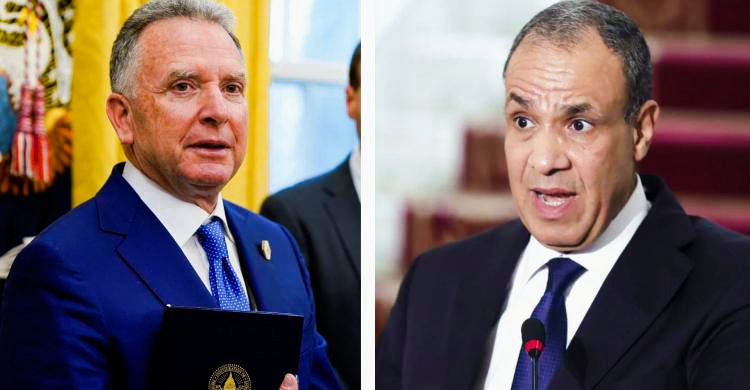Egypt has reiterated its firm rejection of any plans to establish a 'Tent City' in the southern Gaza Strip or implement any demographic changes in the occupied Palestinian territories.
This position came during a phone call between the Egyptian Foreign Minister, Sameh Shoukry, and the US Special Envoy to the Middle East, Steve Wotkyn, on Wednesday, July 16th, where Shoukry emphasized Egypt's complete rejection of those ideas promoted by some parties.
During the call, the two parties discussed ongoing efforts to reach a ceasefire in Gaza and work towards ensuring its sustainability.
They also addressed the issue of prisoner exchange between the two sides and the necessity of delivering humanitarian aid to the sector adequately and without obstacles, given the catastrophic humanitarian conditions experienced by the population.
As part of Egypt's efforts to support long-term solutions, Foreign Minister Sameh Shoukry proposed holding an international conference in Cairo after reaching a ceasefire agreement, aimed at supporting early recovery efforts and rebuilding Gaza, according to a unified Arab and Islamic plan in this regard.
An informed Egyptian source confirmed that Cairo has been hosting trilateral meetings since Tuesday involving Egypt, Qatar, and Israel to discuss details related to the entry of humanitarian aid, securing the exit of patients for treatment outside Gaza, as well as facilitating the return of those stranded.
The source explained that these meetings have seen tangible progress and agreement on several humanitarian issues within the ceasefire agreement and will continue for two days to overcome remaining obstacles and ensure the flow of aid appropriately.
On the other hand, Israeli media revealed that the last 24 hours have witnessed significant progress in indirect negotiations regarding the situation in Gaza, indicating that the path has been paved for reaching an agreement.
According to the Jerusalem Post, Israel presented the 'third map' for the deployment of its forces in the sector, including reducing its military presence to a two-kilometer buffer zone on the southern border near Rafah, with additional flexibility in the positioning of forces between the Morag and Philadelphia corridors.
Despite the progress, there are still key points of contention between Israel and Hamas, notably the arrangements for the withdrawal of Israeli forces during the ceasefire period and the mechanism for distributing aid within the sector, which keeps the negotiations ongoing despite the positive atmosphere beginning to emerge.

